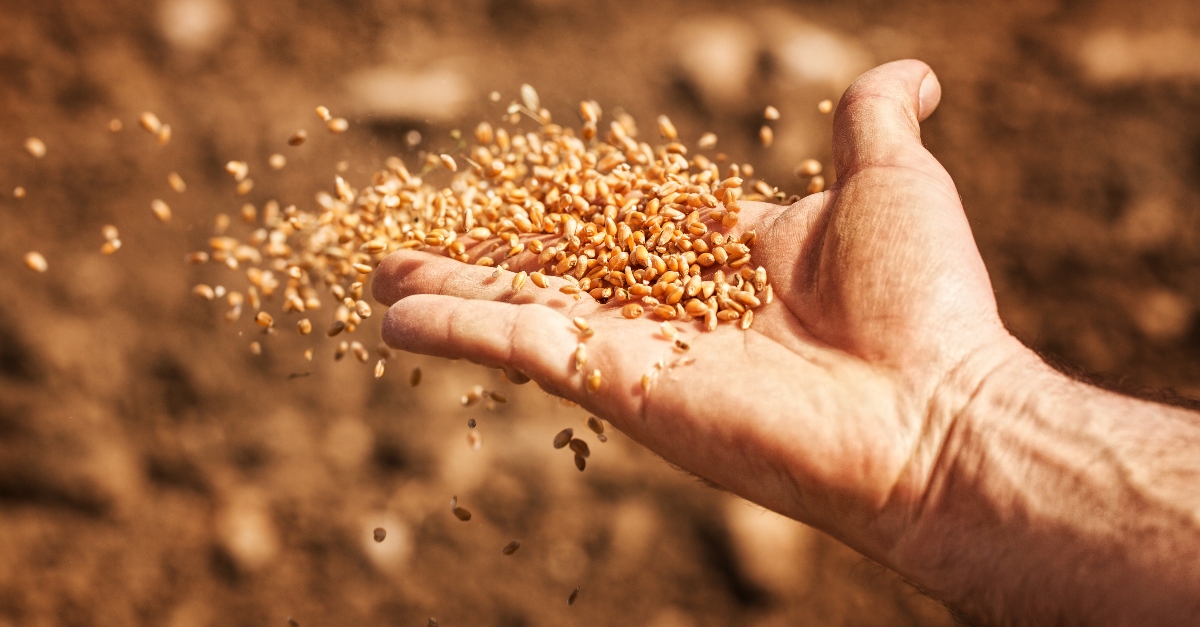
In the Gospel of Matthew, Jesus shares a wonderful parable that continues to resonate with us today—the Parable of the Sower. Jesus paints a vivid picture of a sower scattering seed on different types of soil, symbolizing the diverse responses to the message of the kingdom of God. This parable challenges us to examine the condition of our hearts and encourages us to cultivate a fruitful heart that receives and bears the fruit of God’s Word.
Jesus begins by describing a sower who goes out to sow seed. As the seed falls on different types of soil, its fate varies. Some falls on the path and is devoured by birds, some on rocky ground and quickly withers, some among thorns and is choked, and some on good soil and produces a bountiful crop. Jesus later explains that the seed represents the message of the kingdom, while the different types of soil represent the conditions of people’s hearts.
The path symbolizes those who hear the message but fail to understand it, and the evil one snatches away what was sown in their hearts. The rocky ground represents those who receive the message with joy but quickly fall away when faced with tribulation or persecution. The thorny ground represents those who allow worldly cares and the deceitfulness of wealth to choke out the message, rendering it unfruitful. Finally, the good soil represents those who hear, understand, and bear abundant fruit, yielding a hundredfold, sixtyfold, or thirtyfold.
This parable teaches us profound truths about our response to God’s Word. It reminds us that the state of our hearts determines the fruitfulness of our lives. As we reflect on this parable, several key lessons emerge:
- The Importance of Hearing: The sower scatters the seed, indicating the importance of hearing the message of the kingdom. It reminds us that we must be attentive and receptive to God’s Word, allowing it to penetrate our hearts.
- The Condition of the Heart: The different types of soil illustrate the varying conditions of people’s hearts. It challenges us to examine our hearts and identify any hardness, shallowness, or distractions that hinder the growth of God’s Word in our lives.
- Overcoming Obstacles: The rocky ground and thorny soil highlight the challenges and obstacles we may face in our faith journey. It calls us to persevere through trials, resist worldly distractions, and prioritize our relationship with God.
- Bearing Fruit: The good soil serves as a model for us to aspire to—a heart that receives the message, understands it, and produces abundant fruit. It encourages us to cultivate a heart that is receptive, open, and transformed by God’s Word.
So, how do we cultivate a fruitful heart?
a. Prepare the Soil: We prepare the soil of our hearts by engaging in regular prayer, study of Scripture, and seeking the guidance of the Holy Spirit. We create space for God’s Word to take root and grow within us.
b. Remove the Obstacles: We must identify and address any obstacles that hinder our spiritual growth. This may involve letting go of worldly distractions, resolving conflicts, or seeking healing and restoration in our relationships.
c. Embrace the Process: Cultivating a fruitful heart is an ongoing process. It requires patience, perseverance, and a willingness to allow God to work in and through us. We trust that God is the ultimate gardener, nurturing and shaping us into vessels that bear abundant fruit.
d. Live Out God’s Word: Fruitfulness is not limited to personal spiritual growth but extends to the impact we have on others and the world around us. We bear fruit as we live out God’s Word, showing love, compassion, and justice to those around us.
As we reflect on the Parable of the Sower, let us examine the condition of our hearts and commit to cultivating a fruitful heart that receives and bears the fruit of God’s Word. May we be attentive to God’s message, remove obstacles, and embrace the transformative power of his Word in our lives. Let us strive to be like the good soil, yielding an abundant harvest for the glory of God.